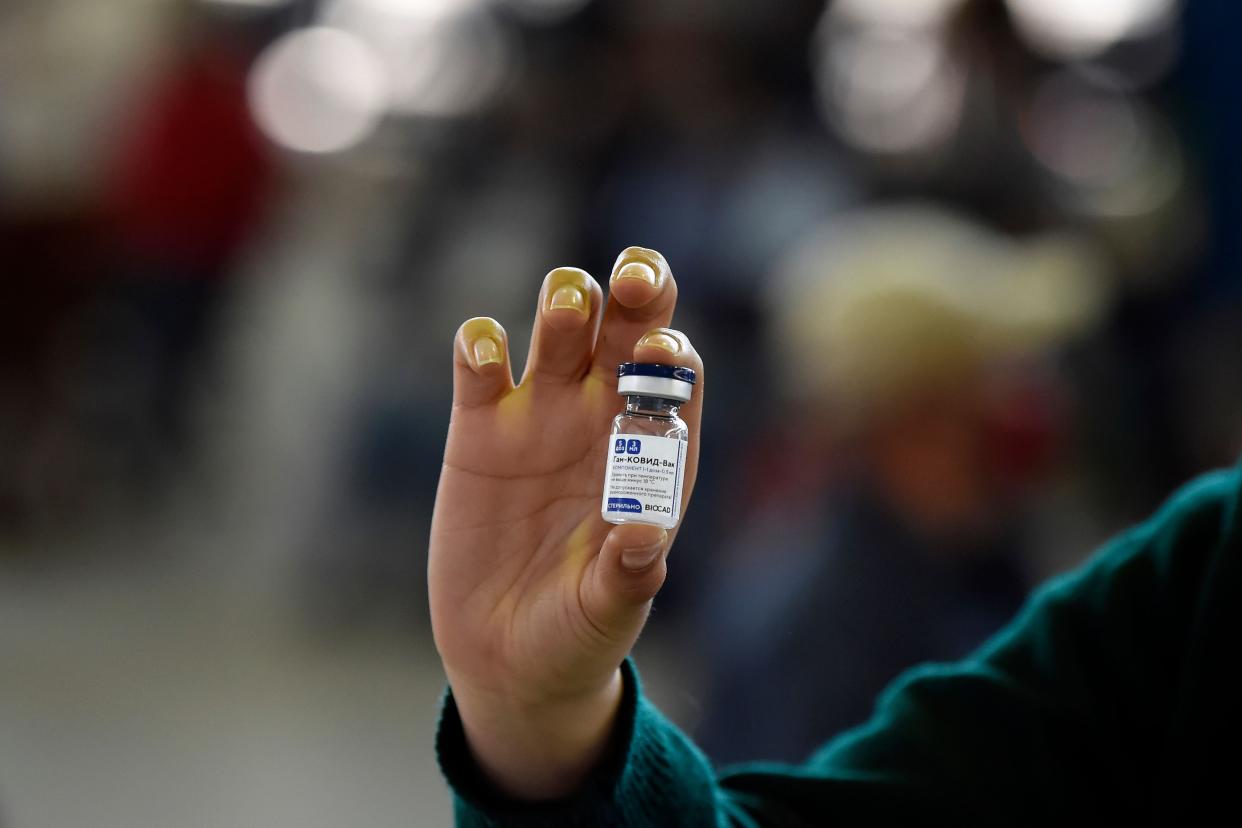‘Nyet, thanks’: Two-thirds of polled Russians don’t want Sputnik vaccine and think coronavirus was developed as biological weapon
Just say “nyet.”
More than 60% of Russians don’t want their country’s domestically developed coronavirus vaccine Sputnik V, and they think COVID was developed as a biological weapon.

Young Russians between 18 and 24 years old were the least trusting in Sputnik V, according to a survey of 1,601 people in 50 regions conducted by the Levada Center, an independent polling firm.
The number willing to get the shot was down from 38% in December 2020 to 30% in February, with 4% of respondents already vaccinated, the Levada Center said in a statement. More than half of Russians surveyed, or 56%, do not fear contracting the coronavirus itself, Levada said.
The suspicion that the virus came from a lab was highest in respondents aged 40-54, with 71% of them believing that. Just 23% of respondents overall believe the virus evolved naturally, even though research on a number of fronts has shown that it jumped from animals to humans.
Three vaccines have been approved in Russia, which has logged nearly 4.3 million cases in the year since the pandemic started, according to Reuters. Sputnik V’s mass vaccination program was launched in December in the 145-million population country, with more than 2 million vaccinated with at least the first dose, the news wire said.
The vaccine is also being administered in Hungary, according to The Associated Press, even though it’s not yet approved by the European Medicines Agency, the European Union’s regulatory body. Slovakia announced on Monday it has signed a deal to acquire 2 million doses, AP reported. It is already being administered in Mexico, AP reported last week.
